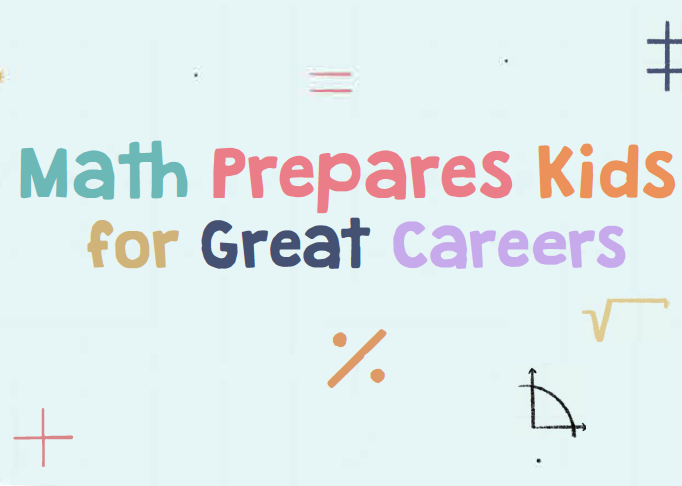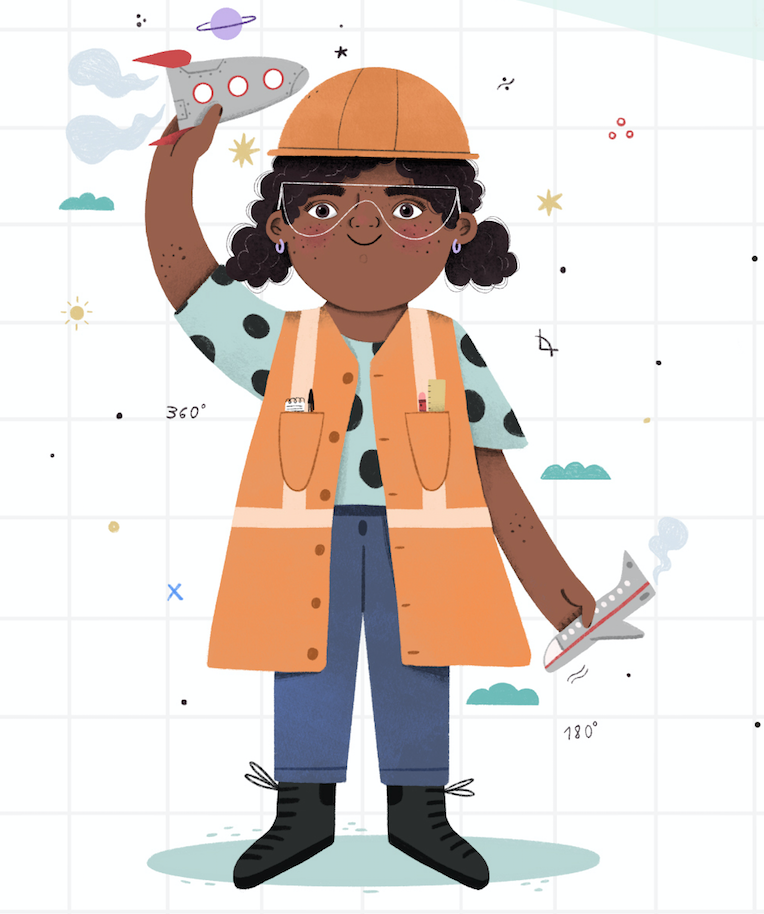

Last Updated on August 31, 2021
When compared to other high school subjects, math is the most widely loathed. Algebra, geometry, pre-calculus, trigonometry, calculus––you name it––they’ve all got a bad reputation, one likely formed in kindergarten and following us well into our lives as college students, and it’s not hard to see why. Math class can be difficult and, more importantly, abstract. As a middle school student, it can be frustrating to understand the importance of Algebra II, especially when it doesn’t fit naturally in your strengths.
With that said, math skills are some of the most important for your children to acquire. Not only can math be exciting, but it can also open new doors for your child. Mastery of quantitative skills is one of the best ways to guarantee success beyond high school. Sure, pre-algebra might not seem important now, but it could eventually lead your child to a rewarding career in finance, computer science, or even aviation. The sky is truly the limit.
There are many high-demand, well-paying jobs that require strong mathematical skills and knowledge.

Math makes up the root of all aeronautical engineering. Aeronautical engineers use formulas, measurements, and calculations to design, build, and fly aircraft and spacecraft. The median annual salary for an aerospace engineer is $116,500, and demand for this profession is expected to grow 3% by 2030.

Actuarial science is consistently labeled as one of the best jobs in America. Actuaries can work for corporations, hospitals, governments, insurance companies, or investment firms, but they all use math and statistics to manage financial risks. The median annual salary for actuaries is $108,350, and demand for actuaries is expected to grow 18% by 2030.

Pilots use math daily to fly airplanes, helicopters, and other types of aircraft. Principles of flight, navigation, weight, and balance are all about precise calculations. The median annual salary for airline pilots is $86,080, and demand for commercial pilots is expected to grow 5% by 2030.

Construction managers lead construction projects from start to finish. They have to be comfortable with all types of math – from algebra to trigonometry to statistics. A construction manager’s median annual salary is $95,260, and demand for construction managers is expected to grow 8% by 2030.

Economists work for international firms, corporations, research institutions, and governments, but they all use algebra, statistics, and other math skills to analyze and make predictions about the economy. The median annual salary for an economist is $105,020, and the demand for economists is expected to grow 14% by 2030.

Cyber Security Analysts create security systems to protect the computer networks for corporations and businesses. Information security requires the use of algebra and data-driven statistics to protect networks in all industries. The median annual salary for an information security analyst is $99,730, and demand for this job is expected to grow 31% by 2030.

Nurses use fractions, ratios, proportions, and equations to coordinate patient care. They work in hospitals, physician’s offices, senior care facilities, and even in individual homes. The median annual salary for nurses is $73,300, and the demand for registered nurses is expected to increase 7% by 2030.

Software developers create applications and systems that run on computers. They use mathematical logic every day because addition, subtraction, multiplication, and division are used in almost every computer program written. The median annual salary for a software developer is $107,510, and demand for software engineers is expected to grow 22% by 2030.
Math skills are very important for all STEM jobs (Science, Technology, Engineering, and Mathematics). According to the U.S. Department of Commerce, college-educated STEM job holders earn between 29% to 39% more per hour than non-STEM employees with equivalent education.
If your child struggles with math, there is luckily a simple solution: an online math tutor from Thinkster. When it comes to test prep, homework help, and exam practice, our tutors, with their years of experience, can help provide the math help to set your child on a path to success. Here’s how.
The first step of the Thinkster method is figuring out students’ strengths and weaknesses. Before the first tutoring session, your child will take a skills assessment. Whether a learner is above or below their grade level, we’ll determine which math concepts give them the most trouble and meet the student’s needs accordingly.
After this initial phase, our expert math tutors will develop a plan based on the learner’s particular needs. From algebra to calculus––from fractions to geometry––our world-class curriculum can be tailored to meet students in the right place for their needs, addressing difficult concepts in a specialized way unavailable to math teachers in traditional settings. You can even try this all at no cost with one of our free trials.
Technically speaking, your child will interact with their math tutor every time they log on. Each of our online math tutors will design a series of math worksheets tailored to the needs of your student. For example, if a learner needs help with high school geometry, our mathematics tutors will administer a series of worksheets filled with relevant math problems. Similar to traditional math homework, your tutor will grade these worksheets on a daily basis, tracking progress over time. These homework assignments come with sample equations allowing high school students to understand the basics of a mathematical principle before implementing it on their own.
Additionally, with premium Thinkster plans, students can meet virtually with their tutor, wherein they can ask any math questions regarding either their classroom math courses or their customized worksheets. This ability to interact with a private tutor in real-time is one of the things that sets Thinkster apart from other private tutoring services.
When it comes to test prep, be it related to study skills, practice tests, or standardized testing, your Thinkster math tutor is ready to help. When consulting with your tutor, you can specify what your unique goals are. From boosting your GPA to conquering that middle school algebra test, we will provide you with the best math help, backed by years of experience.
In terms of high school math, we currently offer a math curriculum in algebra, algebra II, pre-calculus, calculus, AP calculus, geometry, statistics, and trigonometry. These generally cover most math curriculum requirements in high school.
Apart from high school, we also offer online math assistance for learners from kindergarten to middle school. Regardless of age, we can help your child achieve better grades through the help of our online classroom.
Actually, we have two apps available across all desktops, tablets, and laptops!
The first app is for learners. This is where students will set up an account in order to complete their worksheets and meet with their tutors. They can check out leaderboards that allow them to compare their scores to those of their virtual classmates. For those with more competitive learning styles, this feature is a great way to motivate them through their homework questions.
Our second app is designed for parents, allowing you to track your child’s learning and examine if they’re reaching the desired proficiency. Once you link your account to your child’s, you’ll be able to track all sorts of metrics, a unique feature of our online math program. Curious how well a math tutor is reaching your middle school student? Simply log onto the app and check out your child’s progress on geometry worksheets.
Are your math tutoring programs approved by the department of mathematics and Common Core?
All of our online math curriculum materials are aligned with Common Core standards and practices. Whatever the subject, from calculus and geometry and even trigonometry, you can rest assured that our math educators are preparing your child for success in the classroom and beyond.


